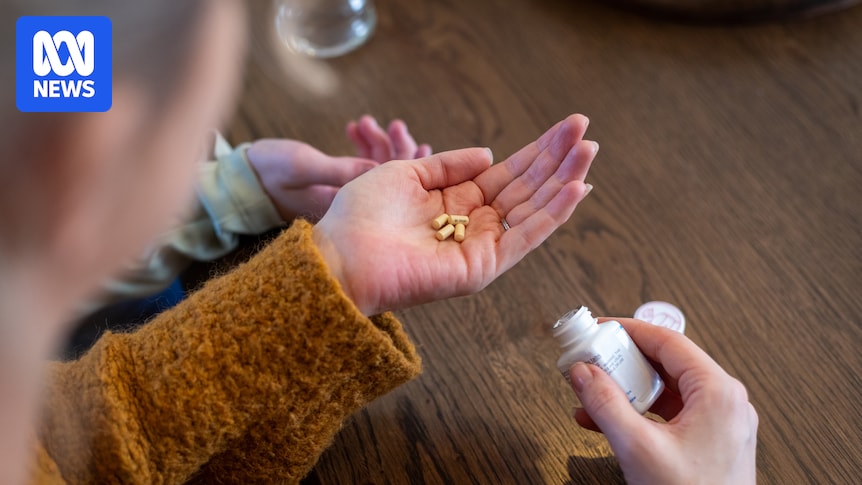Australia’s peak body for psychiatrists has called for a national system to monitor attention deficit hyperactivity disorder (ADHD) diagnoses and prescribing trends amid growing concerns about an over-diagnosis of the condition.
Their concerns come as some states move towards allowing general practitioner-led models of ADHD management and treatment with inconsistent training requirements existing across borders.
The Royal Australian and New Zealand College of Psychiatrists (RANZCP) says maintaining specialist involvement and oversight for complex and high-risk ADHD cases is vital to avoid misdiagnosis and the inappropriate use of stimulants.
RANZCP has issued a new position statement on ADHD care as the shift towards GP-led care in key states, including Queensland, New South Wales, South Australia and Western Australia, coincides with increased awareness about ADHD in adults, fuelled by social media and influencers.
Queensland GPs given ability to diagnose ADHD in adults
College president Astha Tomar said Australian Institute of Health and Welfare data showed dispensing of ADHD medications had increased 11-fold in two decades, with adult prescribing growing most rapidly, particularly among women.
“The community’s need for timely ADHD assessment and treatment is real,” she said.
“The sharp rise in brief patient assessments, growing rates of self-diagnosis driven by social media, and rapidly escalating stimulant prescribing have raised legitimate concerns among clinicians, patients, carers and families.
“Reforms cannot prioritise speed over safety.”
Astha Tomar says a quick consult can’t properly diagnose ADHD. (Supplied: RANZCP)
Dr Tomar said diagnosing ADHD could not be done without a comprehensive psychiatric assessment.
“It is not a five-minute consult,” she said.
“It takes anywhere from 45 minutes and more. The depth of assessment is so important to make sure that the diagnosis is correct.”
‘It’s not about checking off a symptom’
The RANZCP position statement calls for clear guidelines and robust ways for GPs to be able to source help from psychiatrists, when needed.
It calls for mandatory accredited training for GPs in comprehensive psychiatric evaluations, including ADHD assessments.
Sydney-based RANZCP president-elect Angelo Virgona said ADHD symptoms overlapped with those of other disorders, including post-traumatic stress disorder (PTSD).
“People who’ve got a history of PTSD or complex-PTSD because of really adverse experiences in their childhood, they often present with inattentiveness, distractibility, really having difficulties being able to focus and having a high level of arousal and sensitivity to their environment,” Dr Virgona said.
Angelo Virgona says ADHD symptoms overlap with those of other disorders. (Supplied: RANZCP)
“It’s not about, OK, checking off a symptom check list of ADHD symptoms and saying: ‘Yes, you’ve got it.’
“I’ve had people present to me who query ADHD, and I’ve been able to come to the conclusion with the person that their symptoms are more related to a complex trauma or trauma and depressive spectrum symptoms.”
While stimulant medication can be a highly effective treatment for people with ADHD, the drugs also come with potential side effects, including appetite suppression, sleep disruption, dependency and worsening of psychiatric conditions, such as anxiety, mania or psychosis.
Support groups help navigate life after ADHD diagnosis
Dr Virgona said psychological interventions were also helpful as treatment options for ADHD symptoms, such as inattention, and mood regulation.
“There are also non-stimulant medications that have got some efficacy in ADHD,” he said.
“They can be trialled before you look at stimulant medications.”
From December, Queensland GPs will be able to initiate, modify and continue psychostimulant medications for adults with ADHD without any additional training. They can already prescribe medication for children aged four to 18.
In WA, 65 GPs will be trained to diagnose and prescribe ADHD medication for patients aged 10 and older from 2026.
Up to 100 GPs in SA will be ready to diagnose and treat ADHD from February 2026, under a new training package announced last month.
Recent reforms will also allow some trained NSW GPs to treat and potentially diagnose ADHD.
GPs in NSW will soon be able to diagnose, treat ADHD patients
While the RANZCP is not against expanded roles for GPs in ADHD assessment and treatment, Dr Virgona said the college is calling for robust training.
“We need to have the right building blocks in place, get it right early so we don’t suffer the consequences of people being prescribed stimulants who don’t need them and then having the negative physical and mental consequences of that,” Dr Virgona said.
“That’s going to be absolutely critical.”
Dr Virgona called for a nationally consistent approach to GP care for people with ADHD to be put on the agenda for the next meeting of federal and state health ministers.
“We’ve got to make sure that the training’s good and that the GPs have got access to good supervision … that they’re part of a network, so that they can refer to a psychiatrist for the trickier and more complex cases,” he said.

